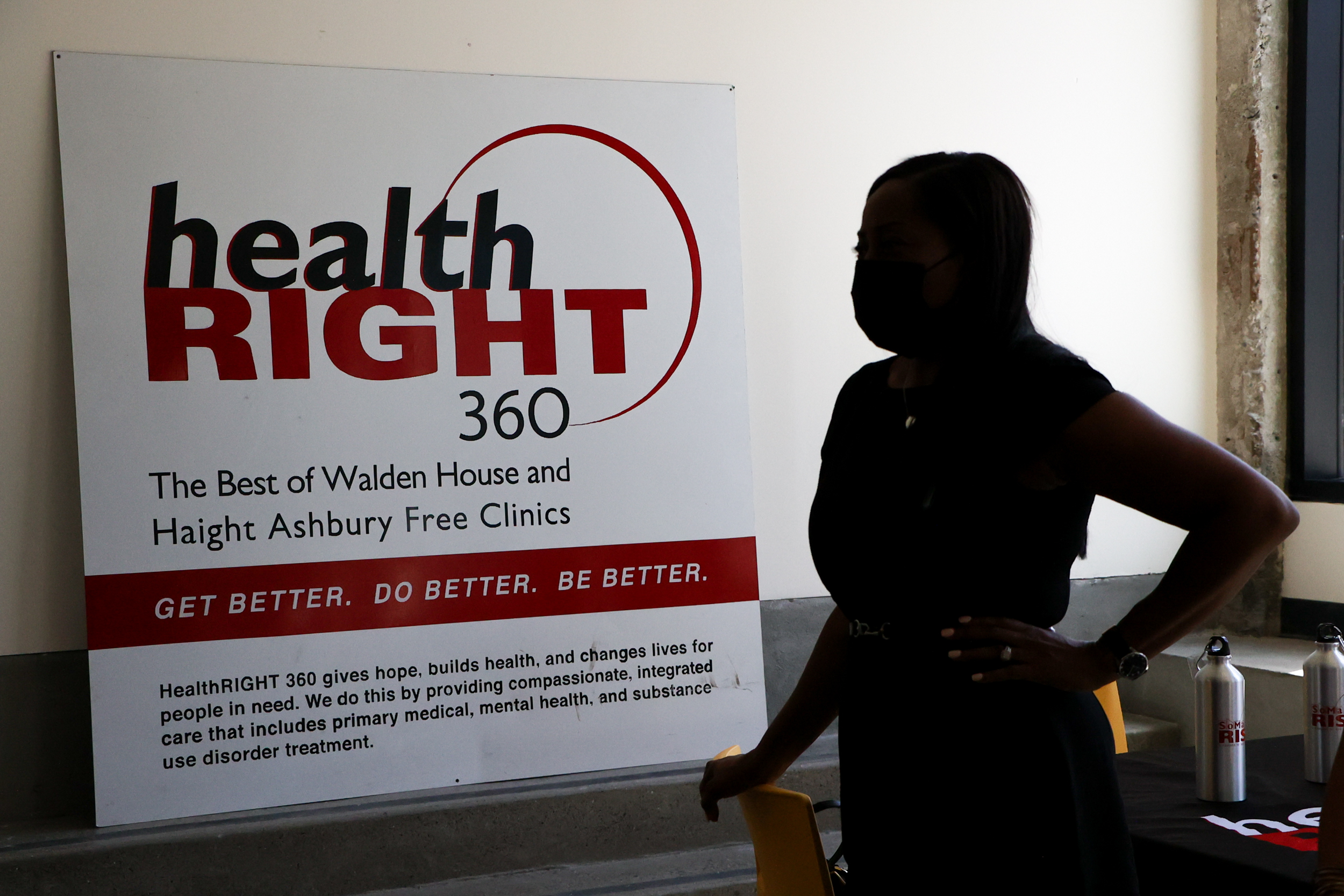A worker in charge of administering medicine at a San Francisco drug rehab nonprofit died of an overdose while on the job in a treatment center, public records reveal.
The nonprofit HealthRight 360, the city’s highest-paid drug rehab organization, previously helped run the city’s first supervised drug use site, the Tenderloin Center.
Newly obtained records from the Chief Medical Examiner’s Office show staffer David Hamilton died on the job from an overdose at a sober treatment center on Haight Street in October. A LinkedIn profile matching his name and job description states he was previously a member of the Army National Guard.
“I strive to help others battling addiction while I continue to further my education in the Aviation industry,” Hamilton’s LinkedIn page reads.
Hamilton’s death report states he was found dead in his office at 12:15 a.m. on Oct. 4 after ingesting fentanyl and cocaine. His coworkers told investigators that Hamilton had “no complaints” during the day and they last saw him alive at 11 p.m.
At that same facility, in March 2023, a client died of an overdose.
HealthRight 360 reported last week that it was under investigation by the California Department of Health Care Services after two of its clients fatally overdosed at one of its treatment facilities at 890 Hayes St.
News of Hamilton’s death has prompted Supervisor Catherine Stefani to call for new legislation requiring city-funded programs to report all overdose deaths at their facilities within 24 hours. Stefani is also requesting all city departments to create a report of all fatal overdoses over the past five years in programs they fund. HealthRight 360 holds contracts with the city worth over $200 million.
“Overdose deaths should never be common in our treatment facilities,” Stefani said. “We need to determine if these deaths are a reflection of organizational structure or systematic challenges in our public health system.”
When initially asked last Friday about the two fatal overdoses at 214 Haight St., Gary McCoy, a spokesperson for HealthRight 360, said the organization was only aware of one overdose death at the facility.
McCoy explained Thursday that staff had tried to revive Hamilton with the overdose reversal medication Narcan, but emergency medical workers who arrived on the scene speculated he had not suffered an overdose. The organization was not aware until The Standard’s inquiry that the cause of death had been determined to be an overdose, McCoy said.
“That staff member was very beloved and had a very strong work ethic,” McCoy said. “We weren’t aware that it was recorded as an overdose until you brought that to our attention.”
McCoy said the organization reports every death in its facilities to the Department of Public Health and the California Department of Health Care Services. But the medical examiner’s office often doesn’t determine the cause of a person’s death until weeks or months later.
Over 6,000 people died while in drug treatment across the country in 2021, according to the most recent data available from the Substance Abuse and Mental Health Services Administration.
“I don’t want to minimize what happened. It’s very traumatizing for staff, clients and of course family members,” McCoy said. “These are people who dedicate their lives for next to nothing to help others. … It would be great to have more support from our elected officials when things like this happen.”
Last year, an investigation by The Standard revealed that four clients had fatally overdosed at treatment facilities run by another nonprofit, PRC/Baker Places.
In supportive housing for formerly homeless people, nearly three people died of overdoses every week in the first seven months of last year, according to the medical examiner’s data. But nonprofits in charge of those programs said they aren’t always aware of how their clients die, leading to a drastic undercount by the city.
San Francisco saw a record 813 people fatally overdose in 2023 due to a surge in fentanyl use, which contributed to 80% of overdose deaths in the city last year.
McCoy said the organization doesn’t allow drug use in its facilities but it may still happen sometimes. He said the overdoses are partly due to the strength of fentanyl and the organization is evaluating its policies in response.
“While all of our residential treatment programs are abstinence-based, we fully understand that a linear recovery is not a reality for many,” the organization said in a statement following the launch of the state investigation. “In the case where a substance is found, we immediately take the necessary steps based on the health, safety, and best interest of the client, other program participants, and staff members who care for them.”
